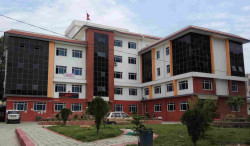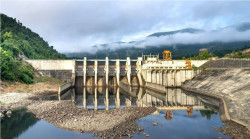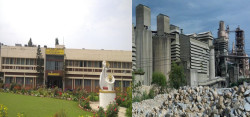Industry

Shreejana Rana was raised by a single mother to break the glass ceiling. She precisely did that.
Her journey in the hospitality industry started with a five-year hotel management course with ITC Welcome Group, a famous hotel chain, in the 1980s, where she learned the ropes of the hospitality industry. Soon after, she got married and became the Executive Director at Annapurna Hotel which her family owned and ran.
The rest, as they say, is history.
Shreejana was approached to bring over three decades of her industry experience, university learning and exposure to lead one of Nepal's oldest and largest business member organisations, the Hotel Association of Nepal (HAN), established in 1967.
In 2019, she was unanimously elected the President of HAN at the 46th annual general meeting of the organisation, becoming the first woman to hold the position.
Covid-19 brought unprecedented challenges to the hotel industry and she facilitated a win-win deal between hotel owners and employees. The result: The HAN Board in 2022 offered her to continue for her second consecutive term as the President. "I thought it was justified because it's not only about taking a position; it's about delivery."
She is also the first woman president of the Nepal-India Chamber of Commerce and Industry since 2019. And recently in July of this year, she was elected the governor of Zonta Club District 25 which includes Nepal, India, Bangladesh and Sri Lanka. Zonta International is an organization fighting for women’s rights in its member countries and Shreejana is the first Nepali national to head such a prestigious organisation.
NepalMinute correspondent Sakshi Agrawal caught up with her to discuss the hotel and tourism industry of Nepal. Here are some excerpts:
How has the tourism industry changed from when you were growing up to now?
In Nepal, tourism at that time was something which was a very glamorous kind of a thing because we had very quality tourists coming in. There were few hotel chains like the Oberoi, Taj and Sheraton. When I was growing up it was very high-end tourism. The visitors came and spent a lot of money. But over the years, things changed. Now we are very worried that we are getting too many backpackers.
What about the hotel industry?
I remember I would spend time in the kitchen cutting onions. At that time, dignity was there because we were taught to even clean the toilets. And that's what being a hotel professional was, which, I see over the years, has died. And I'm really worried about why the quality of employment in the Nepali hotel industry has gone down compared to what it was. I try to figure out – partly maybe it's because most of them (who?) have left Nepal or maybe because there is a lack of upskilling and upscaling.
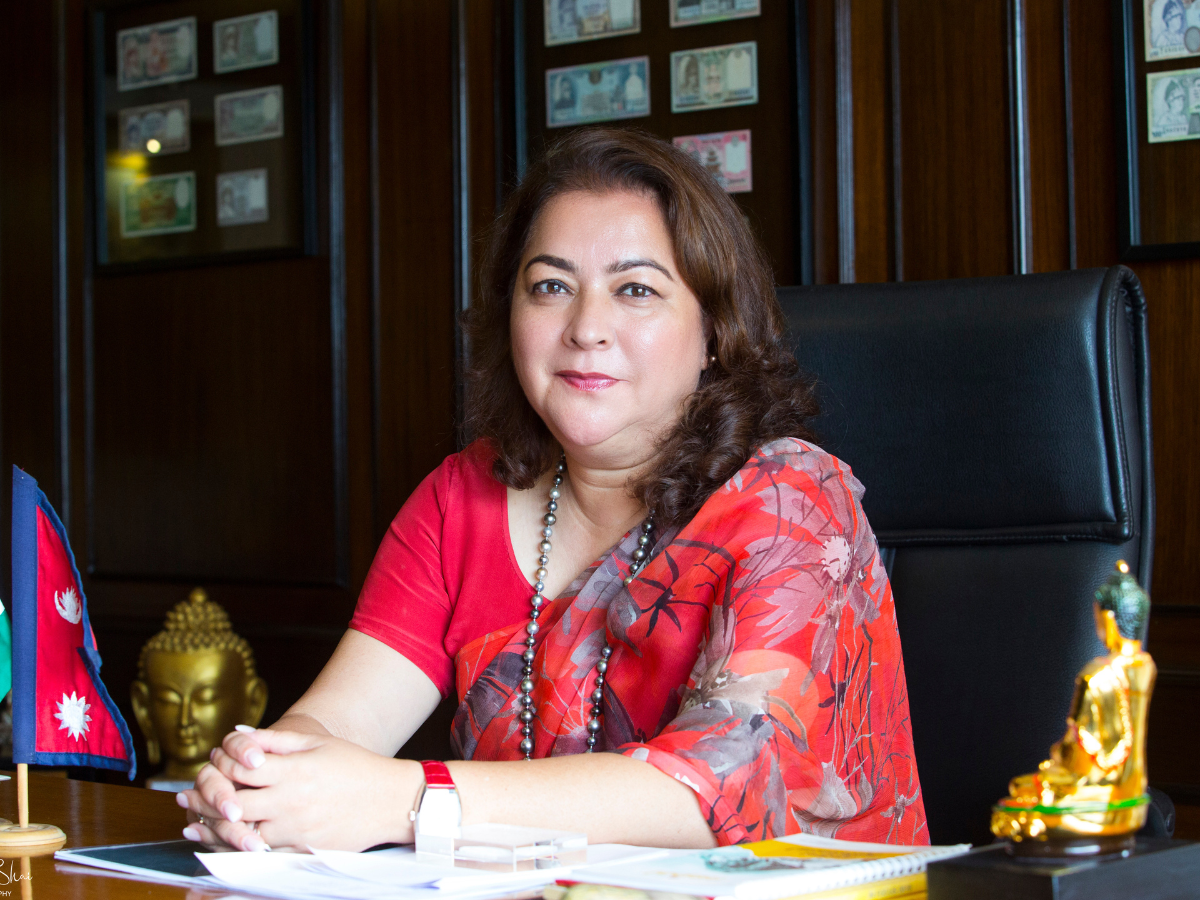
How did the COVID pandemic affect the Nepalese tourism industry?
After the 2015 earthquake, we thought our life is going to be at a standstill. But we did bounce back because the global community, including our neighbours and people from all over the world, helped and supported us.
Fast forward to 2019. It was a brilliant year – 1.2 million tourists entered the country, the highest arrival of tourists in Nepal's tourism history. 2020 was being promoted as the Visit Nepal Year where we were hoping to bring in two million tourists. But then COVID-19 happened. Not even a single tourist arrival.
As the president of HAN, I took on the very important task of bringing the workers and the owners together to see how we are going to sail through this difficult time. The trade union and the HAN board negotiated and counselled each other. We understood that the issue was not only that of the investors but the employees as well. After all, it was unforeseen and nobody was prepared for it.
The odds aside, we negotiated a win-win situation where the employers paid the industry employees a very minimum salary. We made sure the two meals were on the table though and they considered that kind of a salary. And somehow, after two years, we survived. So, I feel that was the biggest achievement for me during that crisis.
What are your thoughts on the current scenario of the Nepali hospitality industry?
I'm really worried. When one tourist comes into the country 10 Nepalis benefit. Not only the hotel owners but the vegetable and meat suppliers too. So, it's a very important industry. But the government has not recognized us as an important industry. That's why we are not given the facility like other industries. They have not given us the status of that.
Politics has become a big problem for the economy. The government and private sector have to work together to make it an integrated whole. But there is no mechanism where we are supporting each other and moving forward. Not that there's no working together at all – it all depends on who the minister is. Some are very keen, others not. When the government changes and the particular minister is gone it's – as a very Nepali adage goes – Back to Mangalman. It's back to Square One.
Even the hotel owners and the tourism investors are not understanding their responsibility towards the business. Rather they think "I have invested and I'm going to make money". I think for an investor that's not it. You need to see how you can increase the number of tourists in Nepal and how you can make them happy so they go back with a smile and help promote Nepal as a destination by word of mouth.
What needs to be done to improve the hotel and tourism industry of Nepal?
Nepal is beautiful. We have the jungle, the mountains and the waters and the diverse cultures. But we have not been able to put it out there. We have to streamline and go ahead.
I feel we need to be very clear about our products and sell the products, to the right target group. For example, the breakfast at the Everest base camp: How many of us know about it? That is an experience of a lifetime. But how is it that we are not selling it to the Mumbai youth? So when it comes to product marketing, we need to have professional people. We have to focus on food safety, and garbage management, too.
We have a lot to improve on. I think there is hope for Nepal and I'm sure we will get there.
The Annapurna Hotel remains shut down since COVID-19. What is the plan ahead?
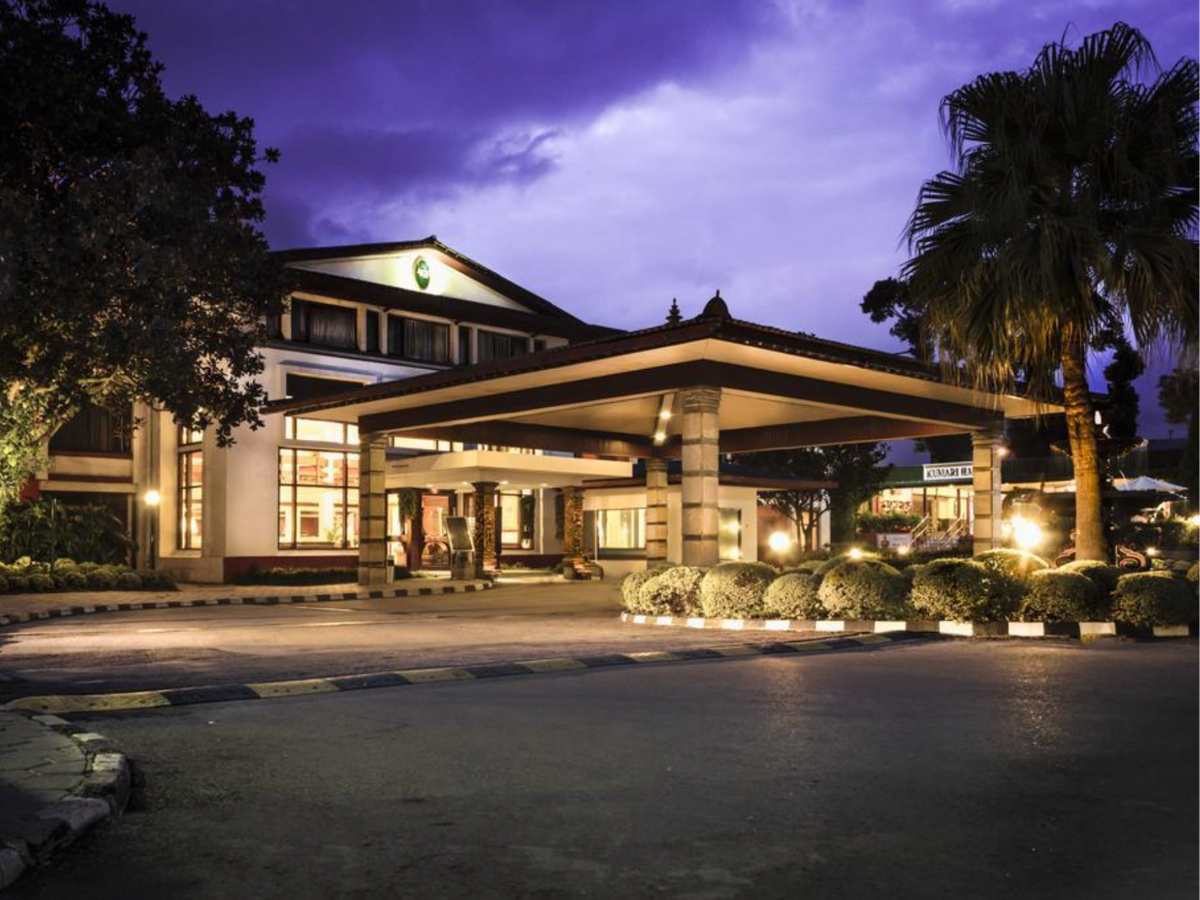
The Annapurna property is the oldest five-star hotel. But everything has its time, including the buildings.
In the 54 years of running Annapurna, I was looking at the guest satisfaction report. They were always happy with the location and service because we had that whole traditional way of making people feel very happy. But they all said that the property had become too tired. We did come up with many designs but when your business is running it is so difficult to stop that and restart it. So, 10 years passed by and we were speculating.
When COVID happened and no tourists were coming in, I took this time to say that this is the right time for me to stop and redevelop. So, I am in the process of redeveloping.
I hope with my dream, courage and hard work, I will be able to restart Annapurna by this year. And by two years, you will say that it has come back with a bang.
Lastly, what are your tips to break the glass ceiling?
You have to have the desire. We can’t all the time say men-dominated and start shying out. It doesn't work. But at the same time, I don't think you should lobby by saying “I'm a woman. I should be given a chance.” You need to prove it.
Enthusiasm, excitement and hard work. Those are things that helped me break the glass ceiling. It wasn't just because I was a woman in the industry. There are a lot of women in the industry. But I know for sure many women are too comfortable sitting in their set-up and working. They don't take that extra step to come into that world.
